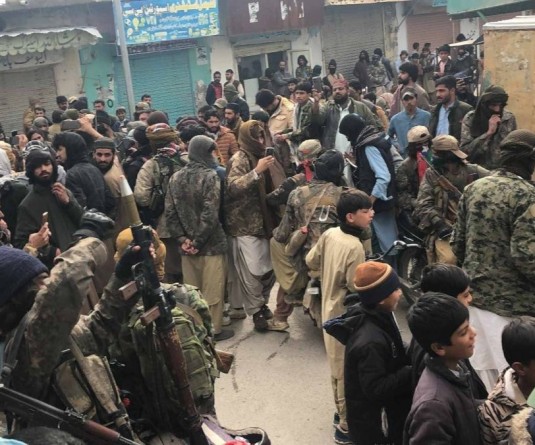A Palestinian returns a tear gas canister fired by Israeli troops during a protest against Israel's plan to annex parts of the occupied West Bank, in Hebron on June 12, 2020. (REUTERS File Photo)
GENEVA, June 16 (Reuters): U.N. human rights experts said on Tuesday that Israel's plan to annex significant parts of the occupied West Bank would violate international law banning the taking of territory by force, and urged other countries to actively oppose it.
A joint statement, signed by nearly 50 independent experts, voiced dismay at U.S. support for Prime Minister Benjamin Netanyahu's "unlawful" plan to extend sovereignty, de facto annexation of land that the Palestinians seek for a state.
"The annexation of occupied territory is a serious violation of the Charter of the United Nations and the Geneva Conventions, and contrary to the fundamental rule affirmed many times by the United Nations Security Council and General Assembly that the acquisition of territory by war or force is inadmissible," it said.
What would be left of the West Bank after annexation of about 30% would amount to a "Palestinian Bantustan", it said.
There was no immediate reaction from the government of Netanyahu, who has set July 1 as the date to begin advancing his plan to annex Israel's settlements and the Jordan Valley in the West Bank, hoping for a green light from Washington.
U.S. President Donald Trump has unveiled a peace plan that includes Israel keeping its settlements and the Palestinians establishing a state under stringent conditions.
Palestinians have rejected the proposal and voiced outrage at Israel's proposed annexation.
"The United Nations has stated on many occasions that the 53-year-old Israeli occupation is the source of profound human rights violations against the Palestinian people," the experts' statement said.
Violations have included land confiscation, settler violence, home demolitions, excessive use of force and torture, restrictions on the media and freedom of expression, and "a two-tier system of disparate political, legal, social, cultural and economic rights based on ethnicity and nationality", it said.
"These human rights violations would only intensify after annexation," it added.






